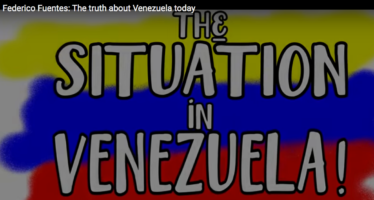G20 agrees to address currencies
![]()
Leaders of the G20 group of major economies have agreed to avoid “competitive devaluation” of currencies after a second day of difficult talks in the South Korean capital, Seoul.
Leaders agreed to come up with “indicative guidelines” to tackle trade imbalances affecting world growth. Tensions had been high between some delegations over how to correct distortions in currency and trade. Some fear the conflict, chiefly between China and the US, may threaten growth. US President Barack Obama said there should be no controversy about fixing imbalances “that helped to contribute to the crisis that we just went through”. “Exchange rates must reflect economic realities,” he said. “Emerging economies need to allow for currencies that are market-driven. This is something that I raised with President Hu of China and we will closely watch the appreciation of China’s currency.” Washington says that China’s currency, the yuan, is artificially weak and gives Chinese exporters an unfair advantage as well as leading to Beijing amassing huge foreign reserves.However, Chinese officials argue that Beijing has an “unswerving” commitment to reform its currency regime, but that global economic stability is needed to achieve it. UK Prime Minister David Cameron said progress was being made on the issue of imbalances. “Slowly, slowly China is moving into a position of actually increasing domestic consumption, rebalancing its economy,” Mr Cameron said. However, the agreement to develop new guidelines to prevent so-called “currency wars” fell well short of the 4% limit on national trade deficits and surpluses proposed by the US, which had been blocked by China and Germany – the world’s two largest exporters. ‘Fractious’ negotiations The G20 leaders also gave their backing to reforms designed to give emerging economies such as China a bigger say in the International Monetary Fund. In their communique, leaders said they were delivering “a modernised IMF that better reflects the changes in the world economy through greater representation of dynamic emerging markets and developing countries”. UK sources say that officials from the UK, France and Russia had to be called in the early hours of this morning after “fractious” negotiations between China and the US broke down in “acrimony”. In a separate development, UN Secretary General Ban Ki-moon is expected later on Friday to urge the leaders to keep their aid promises to the world’s poor, despite economic uncertainties. UN officials say that Mr Ban, a former South Korean foreign minister, will tell the gathering that the host nation has shown poverty can be eliminated. Irish debts Meanwhile, the UK, France, Germany, Italy and Spain issued a joint declaration to try to calm bond market jitters over a possible future EU bail-out fund. As Irish bond yields reached a fresh high, leaders discussed the Irish Republic’s debt crisis amid concerns that the European Union will have to step in. “Any new [bail-out] mechanism would only come into effect after mid-2013 with no impact whatsoever on the current arrangements,” finance ministers from the five countries said in the declaration.
Related Articles
Entrevista con Frei Betto
![]()
En el nombre político del amor Mónica Baró Sánchez Rebelión Frei Betto no titubea para nombrar las cosas. No deambula
En el veinte anivesario del “¡Ya basta!”
![]()
Los comandantes David y Tacho del Ejército Zapatista de Liberación Nacional observan el mitin de apoyo en Ciudad Universitaria, el
Who are Venezuela’s colectivos?
![]()
The media calls them armed thugs and US Senator Marco Rubio wants them put on the terrorist list, but who are Venezuela’s colectivos (collectives)?




